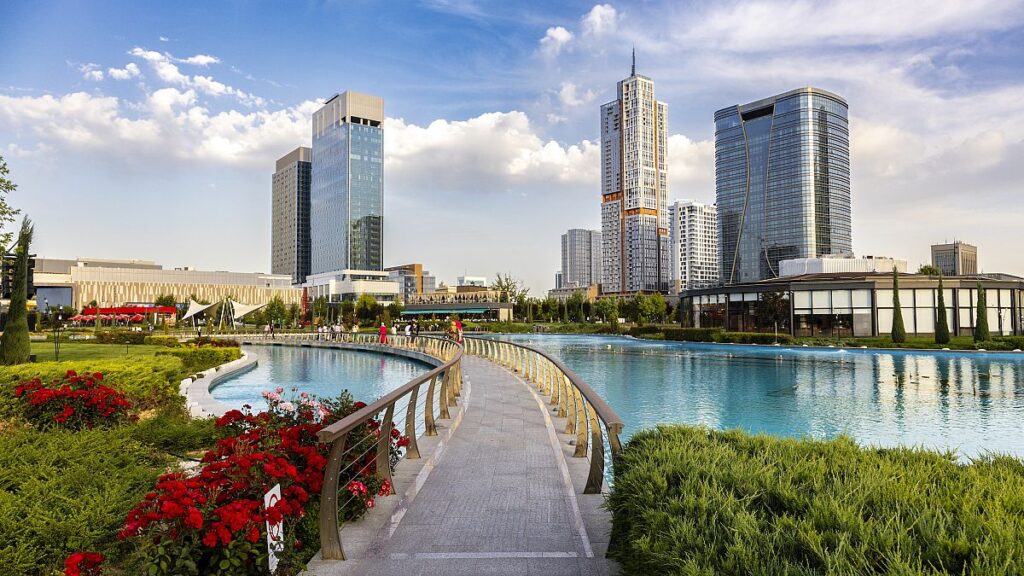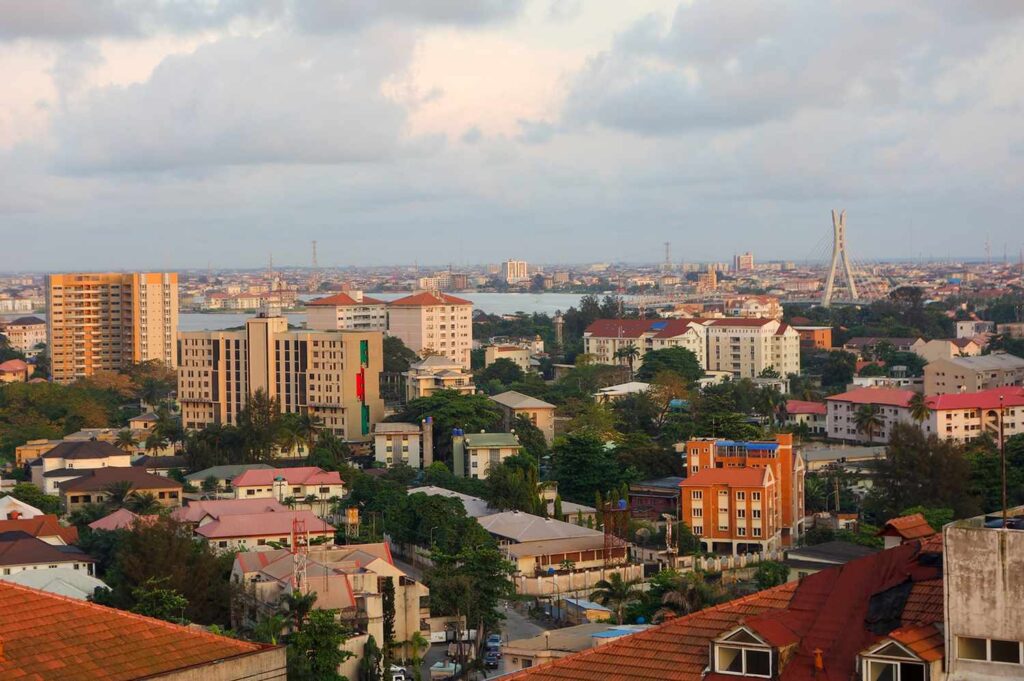As a rising star in Central Asia, Uzbekistan has taken bold steps in sustainability, governance, education and international leadership, reflecting a dynamic transformation that few could have predicted just a decade ago.
Uzbekistan’s Strategy 2030 is the plan behind it all, encompassing five core pillars: environmental sustainability, public administration reform, social transformation, national safety and a future-focused outlook. The brainchild of President Shavkat Mirziyoyev, Strategy 2030 has become a blueprint guiding all parts of the Uzbek administration, with economic goals balanced against environmental and social needs.
Economy: strong growth and global recognition
According to the International Monetary Fund, Uzbekistan’s GDP will exceed €120 billion in 2024. It has been a landmark year for the Uzbek economy, with exports exceeding the €24 billion mark, and gold and foreign exchange reserves reaching €38 billion.
At the Third International Investment Forum in Tashkent, contracts worth €25.5 billion were signed, adding to the flow of foreign investment. The development of infrastructure and energy, the creation of 1.5 million jobs, and progress in WTO accession negotiations with 22 countries, including the United States and China, have been key drivers for sustainable growth. Much of the growth and investment is attributed to the Mirziyoyev administration’s commitments to a more open economy and a much improved business climate.
Environment: on course for a greener future
Over the past five years, 16 large solar and wind power plants with a total capacity of 3,500 megawatts or 10 billion kilowatt-hours have been commissioned in Uzbekistan. As a result, the share of “green energy” in the country’s energy mix this year rose to 16 per cent, a major step towards the goal of 40 per cent by 2030.
The national project Yashilmakon (“Greenhouse”) has already transformed the country: 138 million trees have been planted, “green belts” with an area of 10,000 hectares have been created, 257 new parks have been opened. The My Garden initiative, which provided land plots for 10,000 residents, not only improved the environment, but also breathed new life into local entrepreneurship.
International experts have praised the efforts of Uzbekistan in combating desertification, a major threat to food production and to rural life. The year ahead has been declared the Year of Environmental Protection.
Water resources management: innovation for sustainability
Rational use of water is a key task for the country, where more than 50 billion cubic meters of water are consumed annually. In 2024, the introduction of water-saving technologies made it possible to optimise irrigation on an area of 1.8 million hectares.
Social reforms: supporting people is the basis of progress
The state has strengthened social assistance to cover 2.2 million families, with programmes introduced to support citizens with disabilities, increase employment and provide modern prostheses. A World Bank-supported network of Innovative Social Protection System for Protection of Vulnerable People (INSON) social service centres has also been created.
Cultural revival
President Mirziyoyev has raised the issues of preservation, study and popularisation of the country’s cultural heritage to the rank of state policy.
In 2024, the Uzbekistan Art and Culture Development Foundation organised a number of significant events that emphasised the rich cultural heritage and the international role of the country in the field of art and culture. In April 2024, the exhibition “Uzbekistan: Avant Garde in the Desert” was held in the Italian cities of Florence and Venice.
From August 23 to 26, the Eighth International Congress of the World Society for the Study, Preservation and Promotion of the Cultural Heritage of Uzbekistan was successfully held in Tashkent and Samarkand in partnership with the Center for Islamic Civilization of Uzbekistan under the motto “Heritage of Great Ancestors – the Basis of the Third Renaissance”. In September, the British Museum in London presented a unique exhibition “Silk Roads”, which aroused great interest of the international community.
In September, the British Museum in London opened a unique exhibition called simply “Silk Roads”, which presented some of the rarest artifacts yet to be seen from Uzbekistan. The exhibition aroused great interest of the world community.
Youth and sport: victories that inspire
The year 2024 was a landmark year for Uzbek sports. At the Paris Olympics, the Uzbekistan national team showed the best result in its history, winning 13 medals (8 gold, 2 silver, 3 bronze), which allowed the country to take 13th place among 206 countries. The Uzbek boxing team took first place in the overall medal standings, winning 5 gold medals, 2 silver and 1 bronze.
These victories were the result of many years of work on the development of sports, the creation of modern training bases and state support for young talents. The athletes not only strengthened Uzbekistan’s position in the international arena, but also inspired a whole generation of young athletes.
The country’s young people continue to actively contribute to the development of the economy and society. Today, 22.9 per cent of entrepreneurs in Uzbekistan are under 30 years old, including 3,500 farmers and 7,800 craftspeople.
Digitalization: a step into the future
The Digital Uzbekistan – 2030 programme is accelerating the country’s technological development. The export of IT services brought in revenue of €326 million, and IT parks became home to more than 1,000 startups. The full digitalisation of elections through the “E-Saylov” system for 2024’s parliamentary and local elections brought democratic processes to a new level of transparency.
According to the Global Innovation Index for 2024, Uzbekistan’s economy is now ranked 10th among middle-income nations – up from 133rd a decade ago.
Education and innovation
The higher education enrolment rate has surged from 9 per cent in 2016 to 42 per cent in 2023, with a target to reach 50 per cent by 2030.
This leap is backed by substantial government spending on education, which reached the equivalent of €4.5 billion in 2023 – around 44 per cent of annual social expenditure. This investment has launched myriad new initiatives, such as the establishment of international university branches and scholarships, particularly for women, which have broadened access to quality education and seen Uzbek universities rise in international rankings.
Educational reforms are also tightly interwoven with the country’s digital goals. Universities now offer specialised courses in artificial intelligence, data science and blockchain technology, preparing the younger generation for a competitive global environment.


